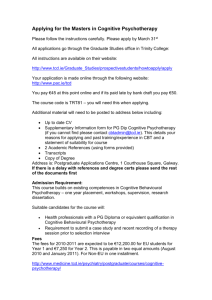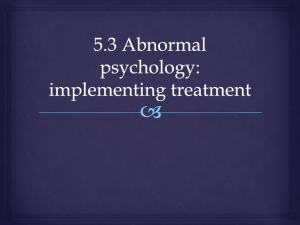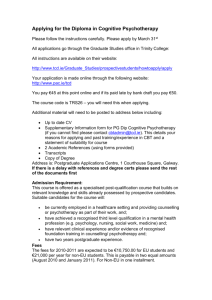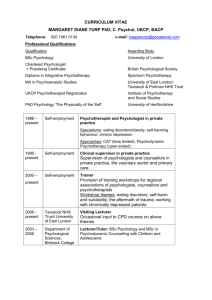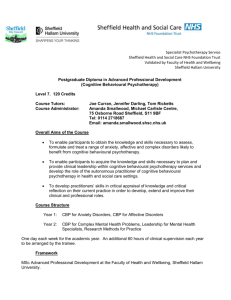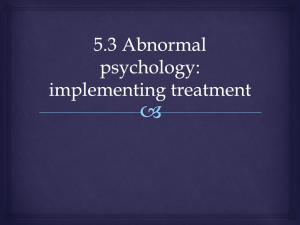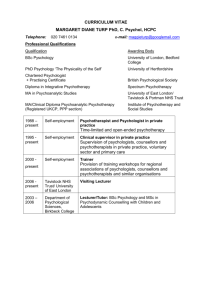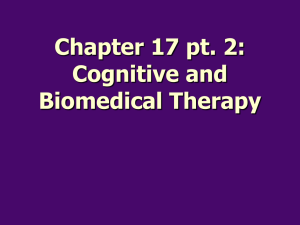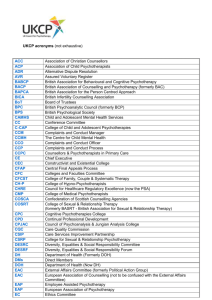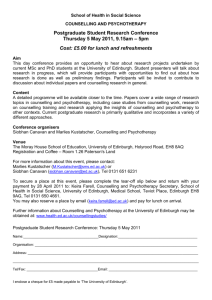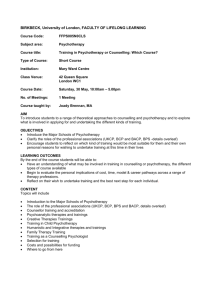Presentation
advertisement
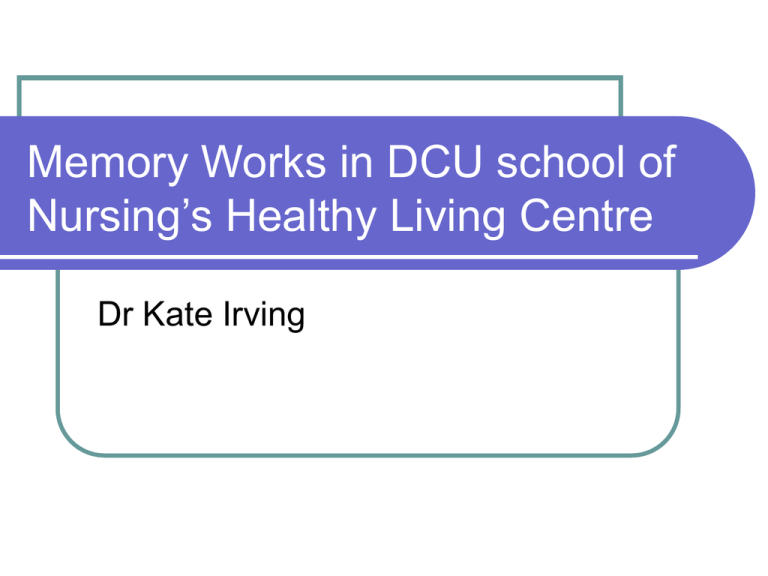
Memory Works in DCU school of Nursing’s Healthy Living Centre Dr Kate Irving Academic practice Academic practice is defined as the deliberate integration of research and education with practice. The HLC is a community focused centre with both a local and national remit and practitioners include those from medical, nursing, psychology and psychotherapy backgrounds with experience in primary, secondary and tertiary care sectors. Main Aims A primary care support service where people who are concerned about their memory can get advice and assessment A primary care service providing holistic assessments for GPs who feel a patient might benefit from a more detailed approach and the provision of a full report A holistic assessment of factors that impact on memory problems such as sleep disturbance, mood disorders, stress, grief, diet, exercise and social interaction. Individualised advice on cognitive strengths, coping mechanisms and risk reduction strategies. Onward referral for counselling or psychotherapy where appropriate Advocacy for the family and person with dementia when they are finding it difficult to get clarity or support for the problems they are facing. Philosophy Positive approaches to healthy ageing / Strengths based Open up the social taboo of talking about cognitive problems whatever age Early identification of memory problems should not be an end in itself Memory is complex and regardless of disease status there are modifiable risks that will benefit anyone in they are concerned about their memory Set up Clinic in the School of Nursing – purpose built Healthy Living Centre Supported by the school + means tested fee 1-2 clients a week 1 clinician plus counselling and psychotherapy Self referrals, referrals from the Alzheimer’s Society Helpline, GP referrals About ¼ get referred to a secondary health service Process Interview to ascertain, social supports, psychological coping mechanisms, life events, sleep patterns, dietary habits, exercise, social interaction, cognitive stimulation, medical history, drug history, mood etc Mini-cog, MMSE, GDS. (about 1 ½ hours) Feedback, follow up letter, letter to GP and or memory clinic Into the future… With ourselves in mind: Strengths based dyad support group- 8 weeks Remember who they are and preserve their valued identities; Live with significant losses; Pace themselves, activate themselves and take it easy on themselves; Stand up for themselves and assert independence; Accept the help of others and make use of community resources; Keep going when times are tough; Prepare for and shape their futures; Work together with their relatives on each of the above.
